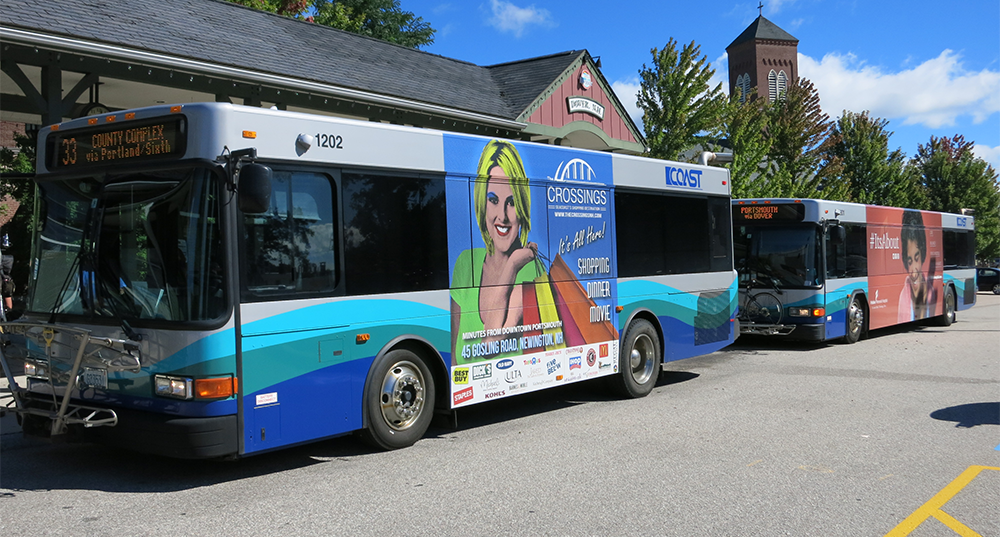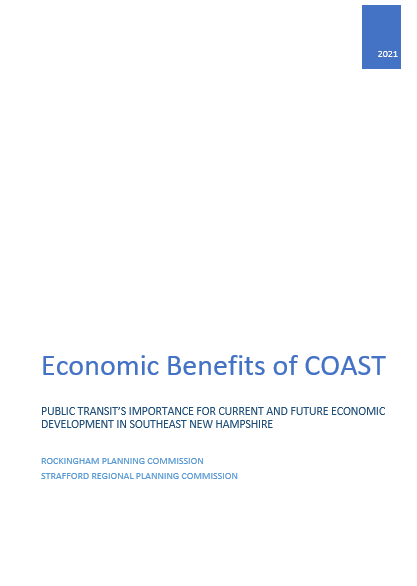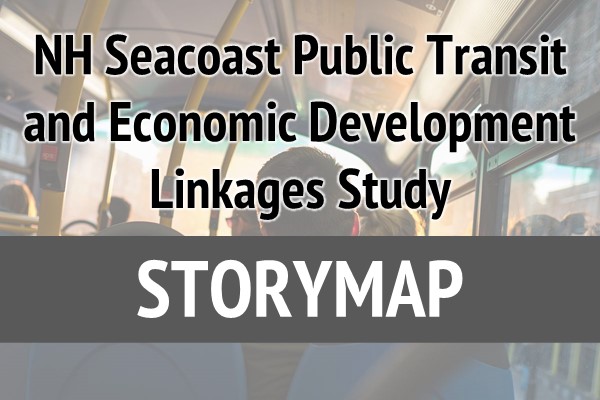Economic Benefit of Transit

SRPC and Rockingham Planning Commission studied the relationship between public transit and the economy in the region of Southeast New Hampshire and southern Maine. The study was designed to apply existing research and analyses tools to the unique circumstance in the region, including unique challenges and constraints.
The Cooperative Alliance for Seacoast Transportation (COAST) is the federally funded transit provider in the region. Unlike transit agencies in other states, COAST receives minimal financial assistance from the state and depends on municipalities to provide matching funds required to access Federal Transit Administration (FTA) funds. Specifically, COAST receives some funding for purchasing new buses, but no funding to support their operation (gas, wages for drivers, maintenance, etc.), which is far more costly.
Our research demonstrates that public transit plays an important role in the region’s economy and generates significant benefits despite the constraints. Stakeholders from around the region described the critical value of COAST’s service. Among the many benefits, COAST provides access to employment, healthcare and improved mobility and accessibility. Numerous managers of Seacoast restaurants and hotels said they would not be able to sustain their businesses without COAST’s services as many people working in Portsmouth or Dover would likely not be able to afford housing near their jobs.
COAST also provides access to healthcare; It was responsible for a total of 78,324 healthcare-related trips in 2019. Without COAST or an available family member to provide those rides, taxi or private van services are the only other option for people to get to where they need to, but these services are often expensive. People without an affordable transportation option may be forced to skip their appointments which could have a downward spiral consequence on their health and budget. Missed appointments are estimated to cost the healthcare industry $150 billion each year. Based on the number of people who ride COAST for medical appointments, the calculated transportation access is worth approximately $1,973,228 in kept appointments for healthcare providers in the region.
As a result, COAST is conservatively estimated to be responsible for $25.8 million in economic benefits to the region.
Documents
Maps
Project Info
- Dover |
- Durham |
- Farmington |
- Madbury |
- Newmarket |
- Rochester |
- Rollinsford |
- Somersworth
Project Staff
Partners







